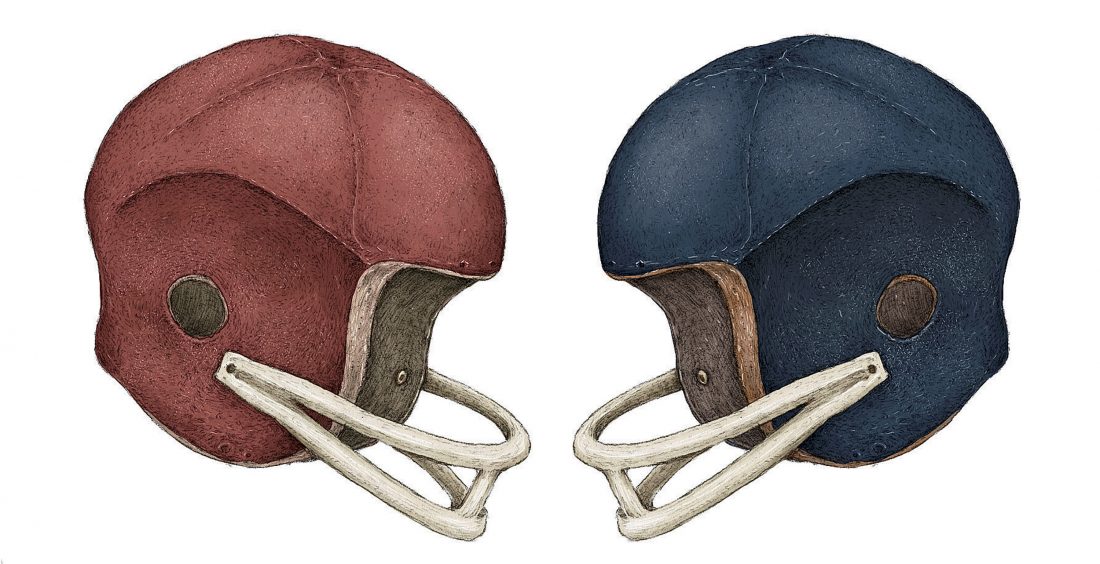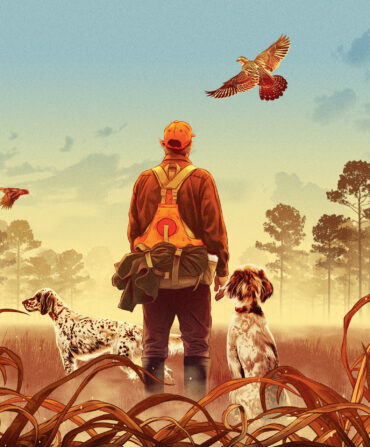Sporting Scene
The Game Goes On

Illustration: Illustrations by Jessica Roux
I heard way too much talk last year about why Southern football is the best, usually from bloggers or sports radio jocks. There were corny pieces on ESPN and the new SEC Network about football being in our people’s blood, akin to religion, and causing rivalries not unlike those of the Civil War.
I don’t need to be lectured about Southern college football. I played on Auburn’s undefeated team in 1993, and my dad was the MVP of Auburn’s undefeated national championship team of 1957. I’ve been around college football my whole life. I get it. So I was a bit surprised to hear the same people who had been hyping SEC football duck and cover after a few big bowl losses. It was as if their minds were blown. After all the marketing, the national push, and the PR avalanche, would Southern football ever be the same? Would the SEC ever recover? They’d run the stats, and things wouldn’t work out as they’d hoped.
What those outsiders don’t know is that Southern football isn’t about dominance and winning, it’s about conversation. Football is our common currency. Whether you’re black or white, rich or poor, a transplant from Ohio or a native of Mobile, you can walk into any bar, sit down at any burger joint, and start talking football. Want to kill time while getting an oil change? Lament those recent bowl losses to someone you’ve just met.
A Southerner’s love of football transcends the usual cultural conventions at play in the rest of the country. The biggest Southern football fan I know is a writer pal in New Orleans who happens to be gay. I’d put his knowledge up against any tobacco-chewing truck driver’s in west Alabama. I know other states have their favorite programs, too. But in the Deep South, our fandom is not spread out among different sports. Nor does it matter if you actually attended the school you’re cheering for. The team you follow on Saturdays—hell, every day of the week—matters as much as what church you attend (or don’t attend) and whether you hunt deer, turkeys, ducks, or antiques. It’s your tribe, and that helps you relate to other tribe members, whether or not you have a single other thing in common.
I can strike up an instant friendship with someone on a bus by saying, “War Eagle.” I would not get the same reaction if I wanted to talk amazing gourmet cheeses, indie film, or the year’s best pinot noir. Football crosses all ethnic, socioeconomic, and religious borders in the South. It doesn’t matter if you’re not rooting for the same team—sometimes, that gives you even more to talk about.
A lot has been made about the rivalry of Alabama and Auburn. And things do get awfully heated, even poisonous. But I’ve never met an Alabama fan not willing to sit down and talk football with someone from Auburn. Even after writing seventeen novels, I invariably encounter people at my Alabama book events with a ragged old copy of the Sports Illustrated cover I was on more than twenty years ago—and that’s what they want me to sign.
They may not give a damn about the themes in my latest stories. But they’re willing to talk about the 1993 team and the tense moments we all shared. It’s a familiar and old conversation. And a way I know I’m home.







